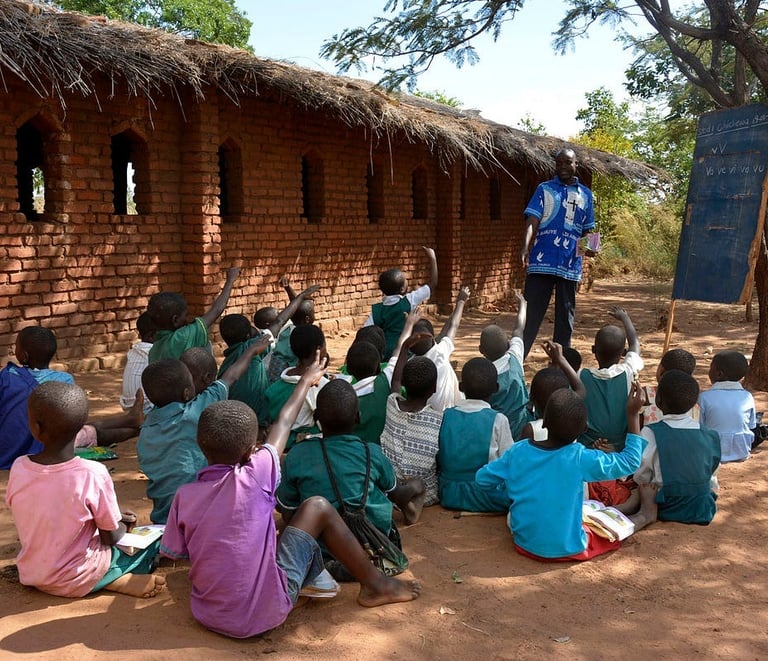Beyond the Classroom: Confronting the Challenges of Rural Education
Education is often spoken about as the great equalizer, yet for millions of children in rural communities, the promise of education remains just that—a promise, not a reality.
Dr. Somachi Kachikwu
2/27/20252 min read


Overview
1. Overview
Education is often spoken about as the great equalizer, yet for millions of children in rural communities, the promise of education remains just that—a promise, not a reality. We celebrate advancements in technology, policy reforms, and new learning methodologies, but too often, these conversations center on urban schools, well-resourced institutions, and students with access to everything they need. Meanwhile, in the places where education could be the most transformative, it is often the most neglected.
My journey in education has taken me into classrooms in Nigeria, where teachers wanted to grow but couldn’t afford the training they needed. Government teachers saw the value in professional development, but because it wasn’t tied to their promotions, it became a personal rather than institutional priority—an investment many couldn’t justify. In Uganda, I met teachers who were equipped with materials but overwhelmed by large class sizes and systemic inefficiencies. The issue wasn’t just access to education—it was the enforcement of quality learning experiences that matched the needs of their students.
The more I engaged in these spaces, the clearer it became that education is not just about having a school building, a chalkboard, and students in seats. It is about what happens inside those classrooms. It is about who is teaching, what they are teaching, and how well they are supported. It is about the policies that govern these spaces and whether they empower or hinder those on the ground.
We like to think of education as a ladder, a tool that lifts people out of poverty, but a broken ladder doesn’t lead anywhere. In too many places, students are in school, but they are not learning. Teachers are present, but they are not equipped. Policies exist, but they do not serve those they were designed to help.
I started Class Dismissed with Dr. K because these issues have sat with me long after my research ended. The deeper I went, the more I realized that rural education is not just an education issue—it is a justice issue, a policy issue, a workforce issue, and ultimately, a global development issue. This podcast is not about offering easy solutions. It is about asking the right questions.
Why do rural teachers remain invisible in education reform conversations?
Why do policies fail to acknowledge the realities of multi-grade classrooms, teacher shortages, and lack of enforcement?
What role do each of us—educators, policymakers, parents, and even listeners—play in transforming education beyond the places we see and hear about the most?
2. Challenges
Rural teacher turnover rates are 25% higher than those in urban districts.
40% of new rural teachers leave within the first five years due to limited professional development and resources.
Schools that implement retention strategies see higher student performance and lower operational costs.
3. Actionable Solutions
Limited Career Growth: Rural educators often have fewer opportunities for advancement and training.
Workload & Isolation: Teachers in small districts may handle multiple subjects, increasing burnout.
Housing & Salary Gaps: Cost of living and lower wages make it difficult for teachers to remain in rural areas
Education is supposed to be a right, not a privilege dictated by geography. If we truly want equity in learning, we need to start thinking differently.
This podcast is an invitation—to listen, to learn, and to act.
The conversation starts now.
Inspiration
Empowering educators to transform rural education together.
Call Us
Subscribe to Our Newsletter
Info@classdismissedpod.com
You can reach us at +1 (240) 918-1973
© 2025. All rights reserved.
Email Us
Stay updated with the latest episodes and educational insights from Dr. K.
